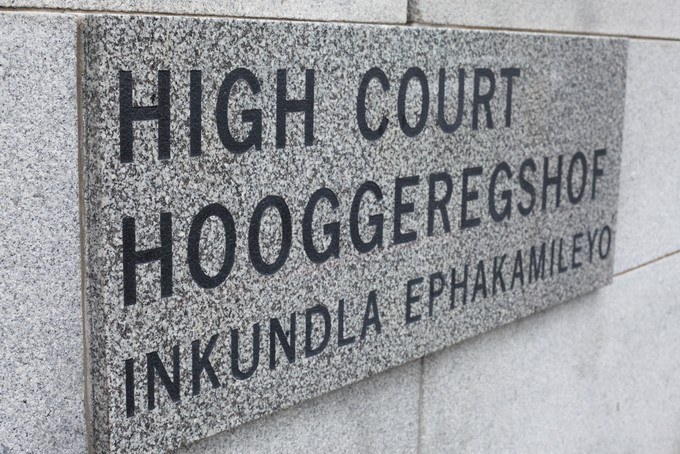
12 October 2021
The South African Human Rights Commission has asked the Western Cape High Court to rule that the City of Cape Town’s Anti-Land Invasion Unit is illegal. Archive photo: Masixole Feni
The Western Cape High Court has dismissed a bid by the South African Human Rights Commission (HRC) to have a judge removed from a case on the grounds that her husband worked for the City of Cape Town. The HRC has applied to the court to have the City’s Anti-Land Invasion Unit declared unlawful on the grounds that the unit does not need a court order to demolish structures.
On Monday 11 October the recusal application took most of the day. Norman Arendse, the HRC’s advocate, said that after the proceedings began again in March, it was found out that Judge Hayley Slingers’s husband worked in a senior position in the City’s transport division and this could create a potential bias in the judgment. Arendse argued that Slingers was obliged to disclose this to the court or recuse herself from the matter. The court dismissed this application on Tuesday and the hearing continued.
The court ruled in August last year that the Anti-Land Invasion Unit would not be allowed to evict someone while the country was in a national state of disaster.
The HRC then applied for the court order to extend beyond the state of disaster, arguing that the ALIU should be declared unconstitutional. But two judges couldn’t reach an agreement on the matter and it is to be reheard before a full bench of three judges. The three judges are Judge Vincent Saldanha, Judge Slingers, and Judge Mokgoatji Dolamo.
The advocate representing the City, Sean Rosenberg, set out an interpretation of the PIE Act (Prevention of Illegal Eviction from and Unlawful Occupation of Land Act) opposing the interpretation of the HRC. Rosenberg argued that a structure in the process of being erected does not constitute a home and that the PIE Act, which requires a court order for a person to be evicted, does not apply. He said that whether or not a structure is a home can be determined on a case by case basis.
In a statement on 11 October, Western Cape Minister of Human Settlements Tertuis Simmers said: “All parties to this matter – including ourselves, the City, private landowners as well as individual residents, really just want certainty as to what can be done by them to protect their land rights immediately and lawfully, especially since the SAPS simply refuses to do so.”
Simmers said that between July 2020 and 4 October 2021 there had been 1,394 attempted land occupations across the Western Cape.
On Wednesday the court will hear argument from the Department of Human Settlements and others.